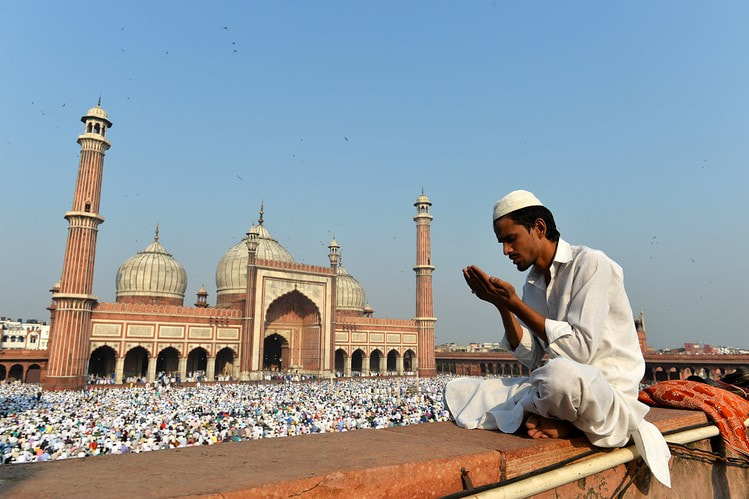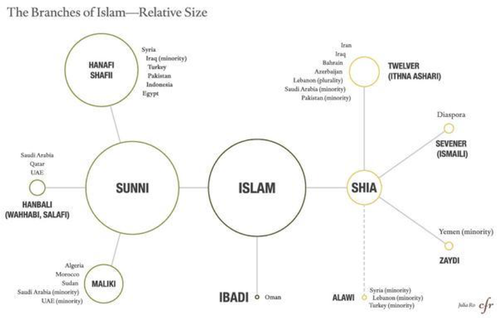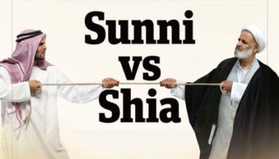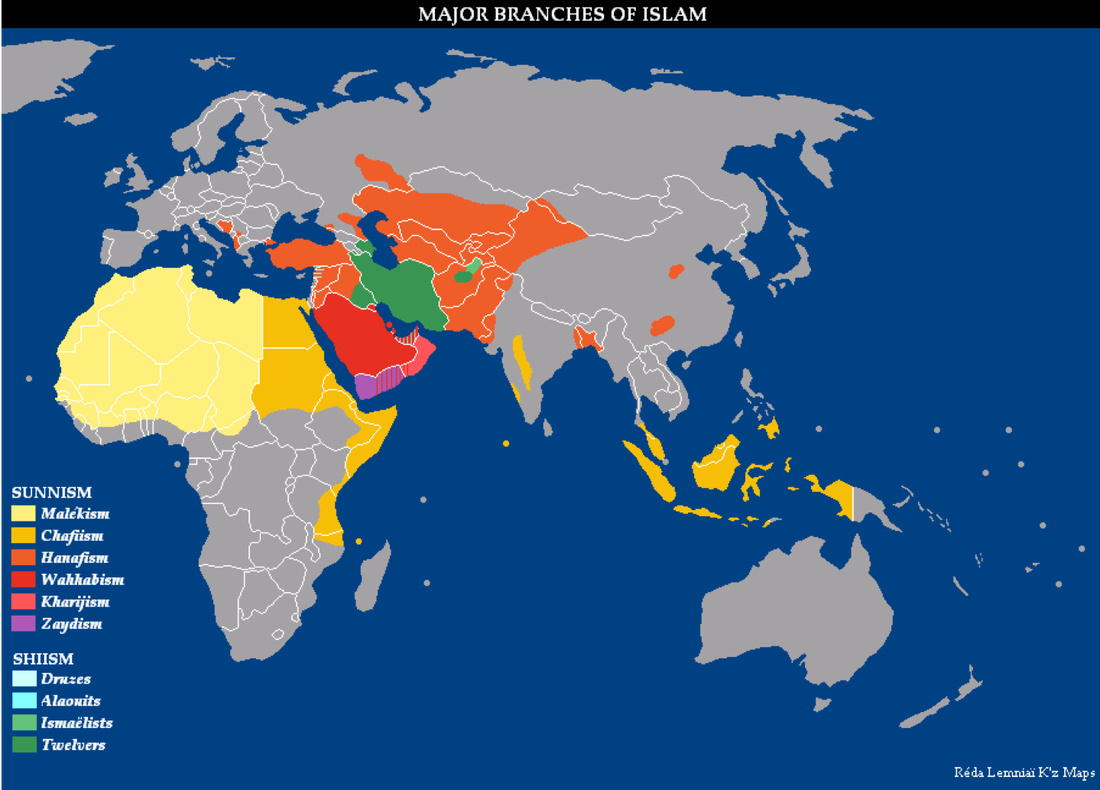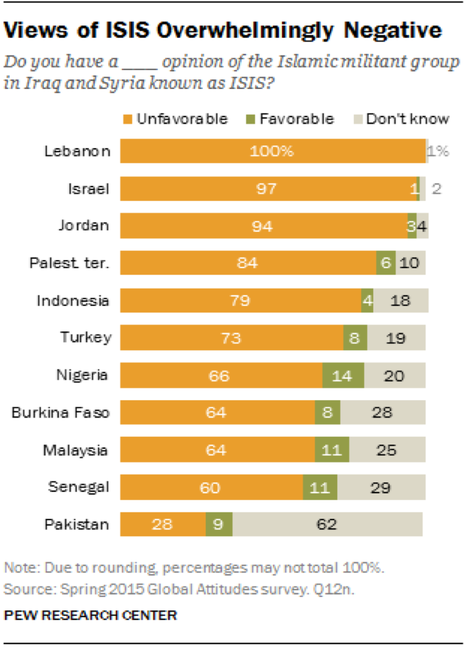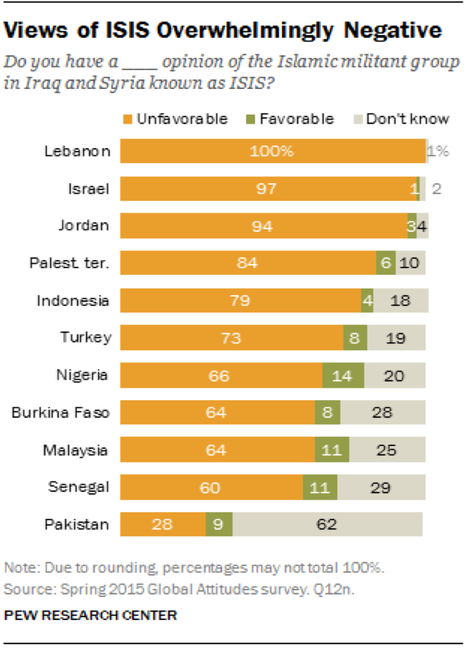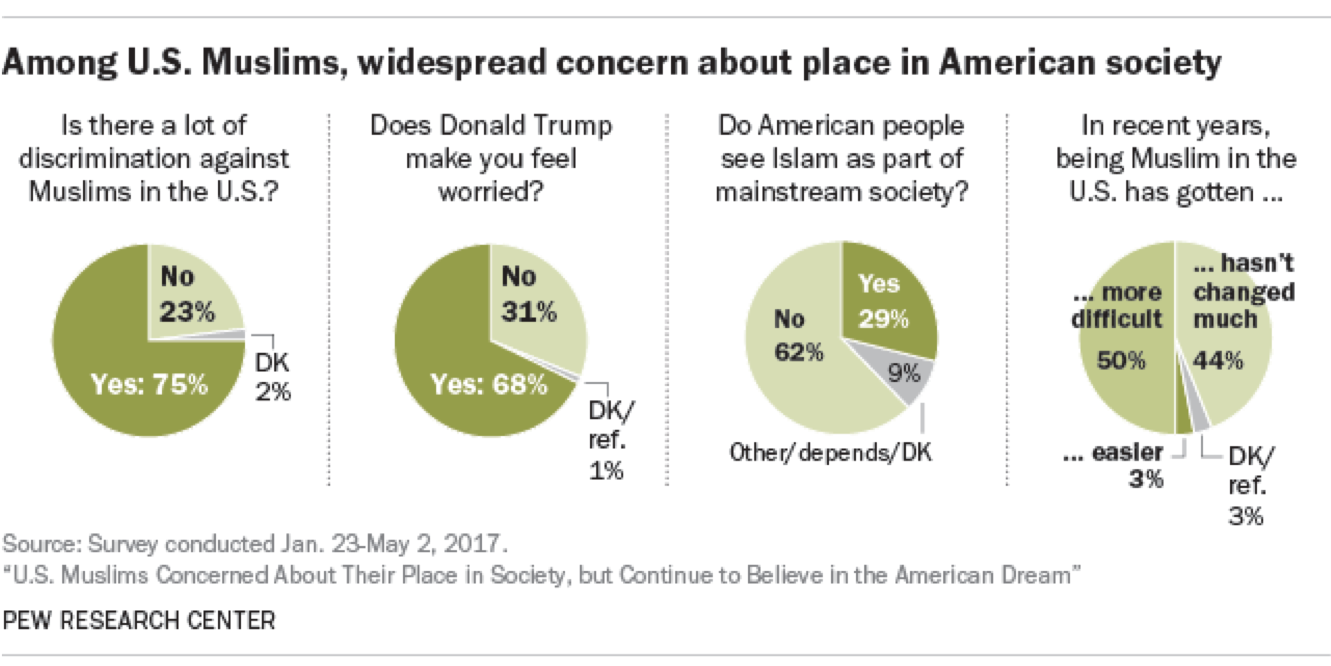Why the split?
The divide was in 632 A.D., when the Prophet Muhammad died and there was a debate about who should be his successor.
The divide was in 632 A.D., when the Prophet Muhammad died and there was a debate about who should be his successor.
- One group felt Muhammad's successor should be someone in his bloodline- the Shiites
- One group felt a pious individual who would follow the Prophet's customs was acceptable- the Sunnis
What is the differences between Sunni & Shi'ite? & Do the 2 branches get along?
|
Similarities
|
Major Differences
|
Today, relations between Shi'ites and Sunnis continue to be strained. Where Sunnis are the majority and hold political power, Shi'ites tend to live in poor conditions. They believe these conditions are due to Sunni oppression and discrimination. Extreme Sunni fundamentalists claim that Shias are heretics and call for their murder.
Iran has national policies that support Shia military groups and political parties in other countries. Sunni-ruled countries have often perceived this as a threat to their well-being and responded by increasing funding to its interests everywhere.
In Syria, the conflict is complex but is divided along Shia-Sunni lines. The majority of the population is Sunni however, the government is Shia. Iran has been supporting Shia efforts to counter Sunni opposition by funding militia and sending troops. In retaliation, Sunni fighters are targeting Shia populations, Shia places of worship, and Iraq (majority Shia).
Despite the differences between Sunni and Shia Muslims, all of this violence and distrust, some Muslim leaders do call for Shia-Sunni unity. They claim that fighting between the sects only works to weaken the Islamic religion.
Iran has national policies that support Shia military groups and political parties in other countries. Sunni-ruled countries have often perceived this as a threat to their well-being and responded by increasing funding to its interests everywhere.
In Syria, the conflict is complex but is divided along Shia-Sunni lines. The majority of the population is Sunni however, the government is Shia. Iran has been supporting Shia efforts to counter Sunni opposition by funding militia and sending troops. In retaliation, Sunni fighters are targeting Shia populations, Shia places of worship, and Iraq (majority Shia).
Despite the differences between Sunni and Shia Muslims, all of this violence and distrust, some Muslim leaders do call for Shia-Sunni unity. They claim that fighting between the sects only works to weaken the Islamic religion.

Jihad
The literal meaning of Jihad is struggle or effort, and it means much more than holy war. Muslims use the word Jihad to describe three different kinds of struggles
Spiritual Jihad
The internal Jihad is the one that Mohammad is said to have called the greater Jihad. The phrase internal Jihad or greater Jihad refers to the efforts of a believer to live their Muslim faith as well as possible. All religious people want to live their lives in the way that will please their God. So Muslims make a great effort to live as Allah has instructed them; following the rules of the faith, being devoted to Allah, doing everything they can to help other people. For most people, living God's way is quite a struggle. God sets high standards, and believers have to fight with their own selfish desires to live up to them, no matter how much they love God.
Physical Jihad (Holy War)
Watch this video clip
When Muslims, or their faith or territory are under attack, Islam permits (some say directs) the believer to wage military war to protect them.
In recent years the most common meaning of Jihad has been Holy War and there is a long tradition of Jihad being used to mean a military struggle to benefit Islam.
However Islamic (Shariah) law sets very strict rules for the conduct of such a war.
The literal meaning of Jihad is struggle or effort, and it means much more than holy war. Muslims use the word Jihad to describe three different kinds of struggles
- A believer's internal struggle to live out the Muslim faith as well as possible
- The struggle to build a good Muslim society
- Holy war: the struggle to defend Islam, with force if necessary
Spiritual Jihad
The internal Jihad is the one that Mohammad is said to have called the greater Jihad. The phrase internal Jihad or greater Jihad refers to the efforts of a believer to live their Muslim faith as well as possible. All religious people want to live their lives in the way that will please their God. So Muslims make a great effort to live as Allah has instructed them; following the rules of the faith, being devoted to Allah, doing everything they can to help other people. For most people, living God's way is quite a struggle. God sets high standards, and believers have to fight with their own selfish desires to live up to them, no matter how much they love God.
Physical Jihad (Holy War)
Watch this video clip
When Muslims, or their faith or territory are under attack, Islam permits (some say directs) the believer to wage military war to protect them.
In recent years the most common meaning of Jihad has been Holy War and there is a long tradition of Jihad being used to mean a military struggle to benefit Islam.
However Islamic (Shariah) law sets very strict rules for the conduct of such a war.
|
What can justify Jihad?
There are a number of reasons, but the Qur'an is clear that self-defense is always the underlying cause. Permissible reasons:
|
What a Jihad is not
A war is not a Jihad if the intention is to:
|
Partner Discussion/Analysis
•Is it correct to refer to radical Islamic terrorists as jihadist? Why or why not?
•Do the terrorists match all of the requirements for a Jihad outlined in the Koran?
•Is it correct to refer to radical Islamic terrorists as jihadist? Why or why not?
•Do the terrorists match all of the requirements for a Jihad outlined in the Koran?
Wahhabism
•Background- A extremely conservative and strict branch of Islam has formed in Saudi Arabia. Many experts and media have blamed the rise of Islamic terrorism on Wahhabism.
Watch this video clip
There are some people who caution about only blaming the Saudis for the rise of terrorism. According to the New York Times-
*"Americans like to have someone to blame — a person, a political party or country,” said Robert S. Ford, a former United States ambassador to Syria and Algeria. “But it’s a lot more complicated than that. I’d be careful about blaming the Saudis.”
*While Saudi religious influence may be disruptive, he and others say, its effect is not monolithic (singular). There are many other reasons for the rise of Islamic terrorism, including repressive governments in the Middle East, local injustices and divisions, the hijacking of the internet for terrorist propaganda, and American interventions in the Muslim world from the anti-Soviet war in Afghanistan to the invasion of Iraq.
•Background- A extremely conservative and strict branch of Islam has formed in Saudi Arabia. Many experts and media have blamed the rise of Islamic terrorism on Wahhabism.
Watch this video clip
- What is Wahhabism?
- Is it valid to blame it for the rise to Wahhabism?
- What impact do you think it has had on radical Islamic terrorism?
There are some people who caution about only blaming the Saudis for the rise of terrorism. According to the New York Times-
*"Americans like to have someone to blame — a person, a political party or country,” said Robert S. Ford, a former United States ambassador to Syria and Algeria. “But it’s a lot more complicated than that. I’d be careful about blaming the Saudis.”
*While Saudi religious influence may be disruptive, he and others say, its effect is not monolithic (singular). There are many other reasons for the rise of Islamic terrorism, including repressive governments in the Middle East, local injustices and divisions, the hijacking of the internet for terrorist propaganda, and American interventions in the Muslim world from the anti-Soviet war in Afghanistan to the invasion of Iraq.
|
More generally, Muslims mostly say that suicide bombings and other forms of violence against civilians in the name of Islam are rarely or never justified, including 92% in Indonesia and 91% in Iraq. In the United States, a 2011 survey found that 86% of Muslims say such tactics are rarely or never justified. An additional 7% say suicide bombings are sometimes justified and 1% say they are often justified. |
Partner Discussion/Analysis
•What do these findings (in the charts) show about the majority of Muslim’s beliefs about terrorism?
•What conclusion can you make about Islam and terrorism?
•What do these findings (in the charts) show about the majority of Muslim’s beliefs about terrorism?
•What conclusion can you make about Islam and terrorism?
Sources:
https://www.worldatlas.com/articles/differences-between-sunni-and-shia-muslims.html
http://www.bbc.co.uk/religion/religions/islam/islamethics/war.shtml
https://www.nytimes.com/2016/08/26/world/middleeast/saudi-arabia-islam.html
https://www.pewforum.org/2013/04/30/the-worlds-muslims-religion-politics-society-app-a/
https://www.worldatlas.com/articles/differences-between-sunni-and-shia-muslims.html
http://www.bbc.co.uk/religion/religions/islam/islamethics/war.shtml
https://www.nytimes.com/2016/08/26/world/middleeast/saudi-arabia-islam.html
https://www.pewforum.org/2013/04/30/the-worlds-muslims-religion-politics-society-app-a/
